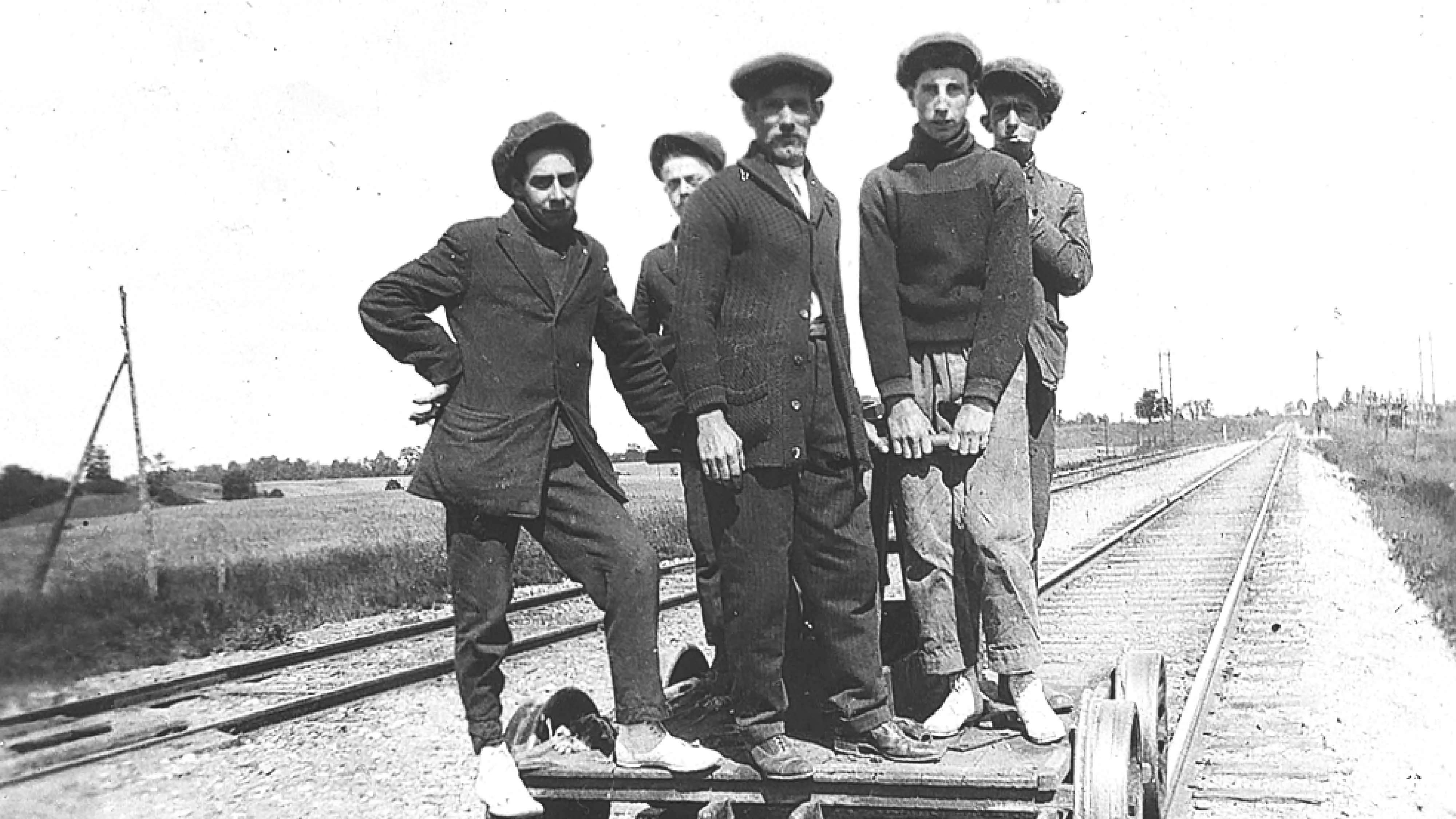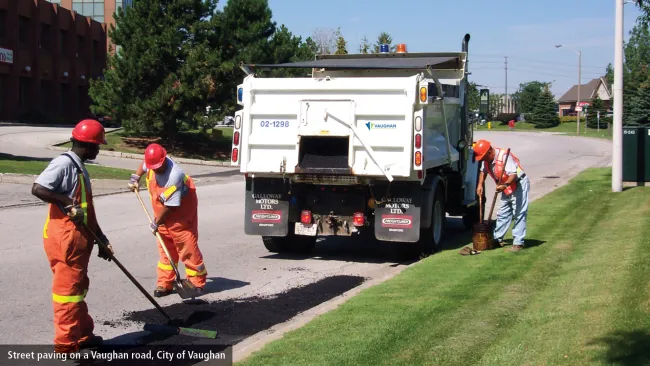From the archives: Village of Nashville
Learn more about the city’s history from the Vaughan Archives
From the traditional territories of the First Peoples of Turtle Island, to a farmland community, to a bustling city centre and everything in between – Vaughan's transformation is a story worth telling. The City of Vaughan’s popular monthly series continues, with historical content from the Vaughan Archives being shared.
Scroll through memory lane, learn about the city's past and explore the places, people and events that were pivotal to the development of the Vaughan we know today. This month, the City is highlighting the Village of Nashville.
The Village of Nashville got its name from Jonathon Scott, who immigrated from Nashville, Tenn., with his wife Before they arrived in Ontario, the area was known as East’s Corners. Unlike other villages that were built around mills, the Village of Nashville was developed around the railway station, which was built in Kleinburg in 1870.
In 1881, the Village of Nashville’s post office opened with Matthew East as the first postmaster. Later operators of the post office included Mr. Everton Lorne Bernath (from 1938 to 1945), Mrs. Marion Estelle Farr (from 1945 to 1952) and Mr. and Mrs. Daniel Hennessey (from 1952 to 1969).
As of 1890, two roads led to the railway station from the east. One road, which ran through Henry Howland’s farm, had a hotel and a grain elevator along it. Local businesses lining the second road included a lumber yard and grain elevator operated by John R. Card. In 1916, hydroelectricity became available in the village. Other families that contributed to the economic development of the Village of Nashville include the Agars, Bernaths, McNeils, Devins, Kurtzes, Pattersons and Dalziels.
The Village of Nashville’s Presbyterian Church was open from 1902 to 1998. Previously, the local Shiloh, Zoar and Coleraine Wesleyan churches had closed, which created a need for a place of worship in the village. The north end of the Presbyterian Church was struck by lightning in 1925, and an extension was later added.
Though Nashville and Kleinburg originated as separate villages, Nashville and its historical buildings became part of Kleinburg over time.
ABOUT VAUGHAN ARCHIVES
Established in 1988, the City’s Archives is home to more than 600 collections, consisting of both City records and cultural records about Vaughan from 1860 to the present day. Records include, but are not limited to:
- City business records with long-term legal and administrative value, such as Council meeting minutes, by-laws, assessment rolls, financial records, reports and official correspondence
- church, community and school records
- census records
- historical photographs
- land records
- historical maps, plans and aerial photographs
- newspapers
- personal papers of past residents and founding families, such as diaries, family histories, journals and letters
- records of local organizations, both past and present
VIEW VAUGHAN'S ARCHIVES ONLINE!
The City's Archival Collection is on digital display for all to explore! The below galleries are available in the City's online gallery on Flickr:
- Early Communities of Vaughan
- From Township to City: The Evolution of Vaughan
- Featured Artists of Vaughan
- Historical Families of Vaughan
- Historical Figures: Lord Beaverbrook
- Historical Photography
- Recollections of Rural Vaughan
- The Mary Wood Collection
- The Way We Were: Representations of Vaughan's Past
- Vaughan Working Environments
- Vaughan Through the Ages: Medicine, Music and Sports and Recreation
- Early Churches of Vaughan
- Historical Schools of Vaughan
- Archival Awareness
A personal Flickr account is not required to access the City's online gallery, which contains only a small selection of the full archives collection. If you are looking for a particular image, original file, primary source record or more, please visit the Archival Database, or contact the Vaughan Archives by calling 905-832-2281 or emailing archives@vaughan.ca.
By managing and preserving both City and community records, the Enterprise Information Management Services team ensures that Vaughan's rich and varied history will continue to be available for future generations. Learn more at vaughan.ca/archives.
For the latest updates, subscribe to Vaughan News and follow the official corporate channel on Twitter, Facebook, Instagram and LinkedIn.




